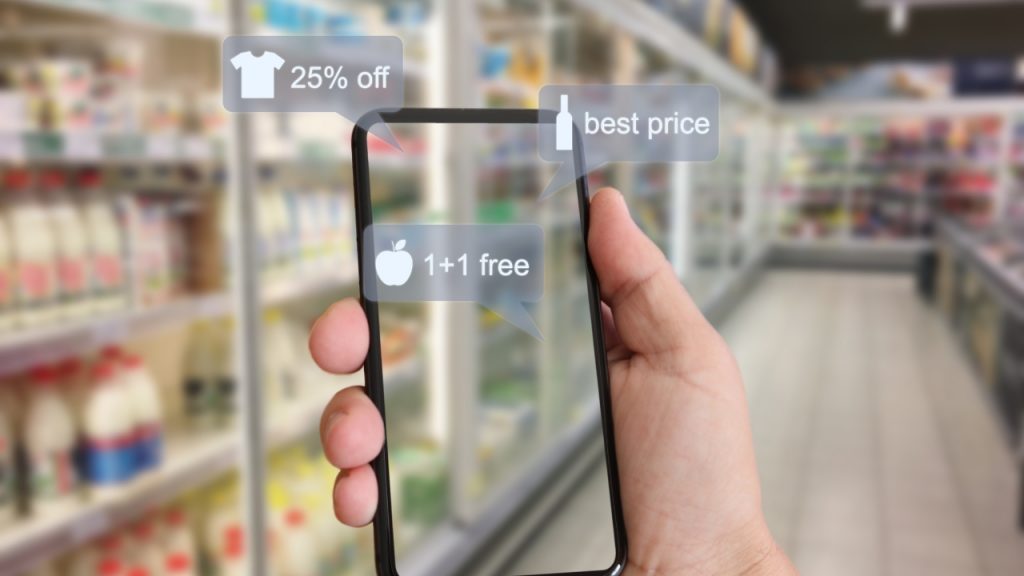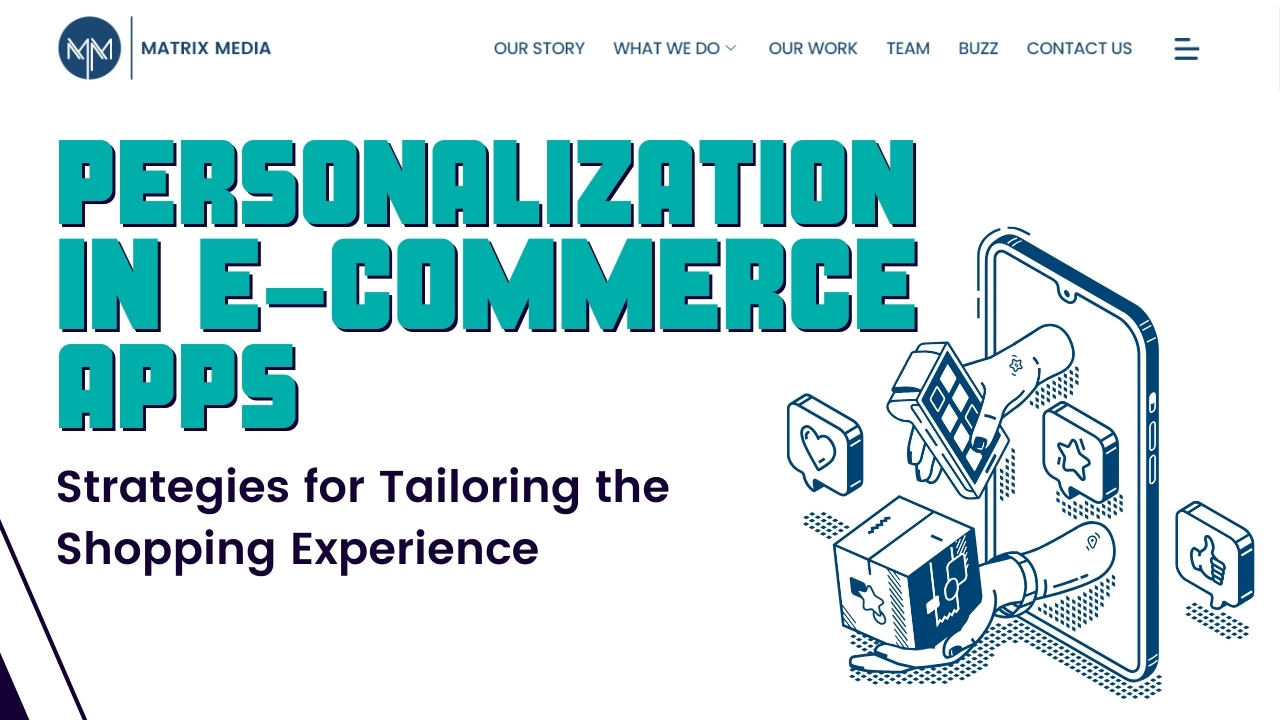Customers are the main pillars of the businesses. Keeping that in mind, various businesses vie for the attention of online shoppers especially. In this fiercely competitive society, standing out from the other businesses requires more than just offering a wide array of products.
Personalization has emerged as one of the crucial tools for success, especially among e-commerce businesses. It enables e-commerce apps to tailor the shopping experience to individual preferences and behaviors.
According to Forbes, personalization improves client connections, as reported by 98% of marketers.
This data indicates that the level of personalization, drastically increases the customer experience, leading to increased conversion rates, customer retention, and engagement. In today’s market scenario, it can be considered that utilizing the personalization strategy helps businesses gain that desired competitive edge.
We will take on the value of personalization in e-commerce apps and practical methods to improve the user experience as they buy in this blog article.
What is Personalisation in e-commerce businesses?
Personalization in e-commerce transcends surface-level interactions by delving into the intricate nuances of individual customer preferences and behaviors. It involves a multifaceted approach that integrates various data points, including demographics, past interactions, browsing history, and purchase patterns.
Businesses generally harness the power of advanced analytics and machine learning algorithms, e-commerce platforms can decode intricate user behavior patterns and anticipate their needs even before they express them explicitly.
This level of insight allows businesses to curate highly tailored shopping experiences, presenting customers with products, promotions, and content that resonate with their unique tastes and preferences.
Consequently, personalization not only enhances the relevance and utility of the shopping journey but also fosters a deeper sense of connection and loyalty between the customer and the brand.
It’s about more than just addressing customers by their names; it’s about understanding their desires and aspirations on a granular level to create truly memorable and impactful interactions.

The Importance Of Personalization
In this era of digital marketing, where options abound, consumers naturally lean towards brands that demonstrate an understanding of their individual preferences. Personalization serves as a beacon amidst the noise, guiding customers toward tailored experiences that resonate with their unique tastes.
Beyond merely enriching the shopping journey, personalization serves as a potent catalyst for business success. By leveraging data-driven insights, e-commerce apps can optimize key metrics such as conversion rates, average order value, and customer lifetime value.
Through personalized product recommendations, targeted promotions, and curated content, brands cultivate a sense of exclusivity and relevance, fostering deeper engagement and satisfaction among their customer base.
Ultimately, this personalized approach translates into tangible results, driving increased sales and forging enduring connections with discerning consumers!
Strategies For Effective Personalization
E-commerce personalization is ultimately about making sure you close the deal. Personalized purchasing experiences for your customers lead to a variety of strategies.
- Data Collection and Analysis: No one can argue about the fact that the foundation of effective personalization lies in data. E-commerce apps should collect and analyze customer data across various touchpoints, including website interactions, purchase history, social media engagement, and demographic information. Advanced analytics tools can help extract actionable insights, enabling businesses to understand customer preferences, behavior patterns, and purchase intent.
- Segmentation: One of the most crucial yet conventional ways of implementing personalization strategies is segmentation. By segmenting customers, e-commerce apps can tailor their messaging, promotions, and product recommendations to resonate with each group’s preferences and needs.
- In this process, after the data is collected, segmentation allows businesses to categorize customers into distinct groups based on shared characteristics or behaviors. This segmentation can be demographic (age, gender, location), psychographic (lifestyle, interests, values), or behavioral (purchase history, browsing activity).
- Personalized Product Recommendations: Utilizing algorithms and machine learning techniques, your e-commerce application can deliver personalized product recommendations to users based on their browsing history, purchase behavior, and preferences. These recommendations can be prominently displayed on the homepage, product pages, or during the checkout process, guiding customers towards relevant products and increasing cross-selling and upselling opportunities.
- Dynamic Content Customization: Personalization extends beyond product recommendations to encompass the entire shopping journey. E-commerce apps can dynamically customize information, such as push alerts, in-app messages, and email newsletters, based on user behavior and preferences in the competitive world of today. It helps businesses foster client relationships and increase engagement throughout the customer lifecycle by providing timely and relevant content.
- Tailored Promotions and Discounts: Instead of generic promotions, you can offer personalized discounts and incentives tailored to each customer’s preferences and purchasing habits. For example, offering a discount on a frequently browsed item or providing a birthday coupon can make customers feel valued and incentivize them to make a purchase.
- Omni-channel Personalization: In today’s omnichannel retail landscape, personalization should extend across all touchpoints, including websites, mobile apps, social media, and physical stores. By integrating data and personalization efforts across channels, you can deliver a seamless and cohesive experience, ensuring consistency and relevance regardless of the platform or device used by the customer.

Benefits You Will Get After Implementing Personalisation Strategies
- Personalized content encourages customers to interact more frequently with the application or website.
- Personalized upsell and cross-sell recommendations can lead to larger order sizes as customers discover complementary products they may not have considered otherwise.
- By demonstrating an understanding of their preferences, your brand can foster stronger connections with customers, leading to increased loyalty and repeat purchases.
- Providing personalized experiences reinforces positive brand perceptions, associating the brand with attentiveness and relevance in the minds of consumers.
- By focusing on personalized interactions and building lasting relationships with customers, your business can lay the foundation for sustainable growth and profitability.
Conclusion
In an era where consumers demand personalized experiences, e-commerce apps must prioritize personalization as a core strategy for driving engagement, conversion, and loyalty.
By leveraging data, segmentation, and advanced technology, businesses can tailor the shopping journey to individual preferences, thereby creating meaningful connections with customers and staying ahead in the competitive e-commerce landscape.
Embracing personalization isn’t just a trend—it’s a necessity for e-commerce success in the digital age.
Master the art of e-commerce personalization with Matrix Media Solutions-
In today’s e-commerce landscape, personalization is pivotal for driving conversion rates, retention, and loyalty.
At Matrix Media Solutions, we empower online businesses with highly tailored content through analytics-driven campaigns. Our digital marketing experts collaborate with you to craft personalized strategies that align seamlessly with your business objectives.
From retargeting dropped customers to optimizing funnel generation, we optimize the timing, content, and channel of your messages.
Contact Matrix Media Solutions to leverage successful segments and design personalized campaigns that drive engagement, foster loyalty, and maximize ROI.


 April 09, 2024
April 09, 2024

